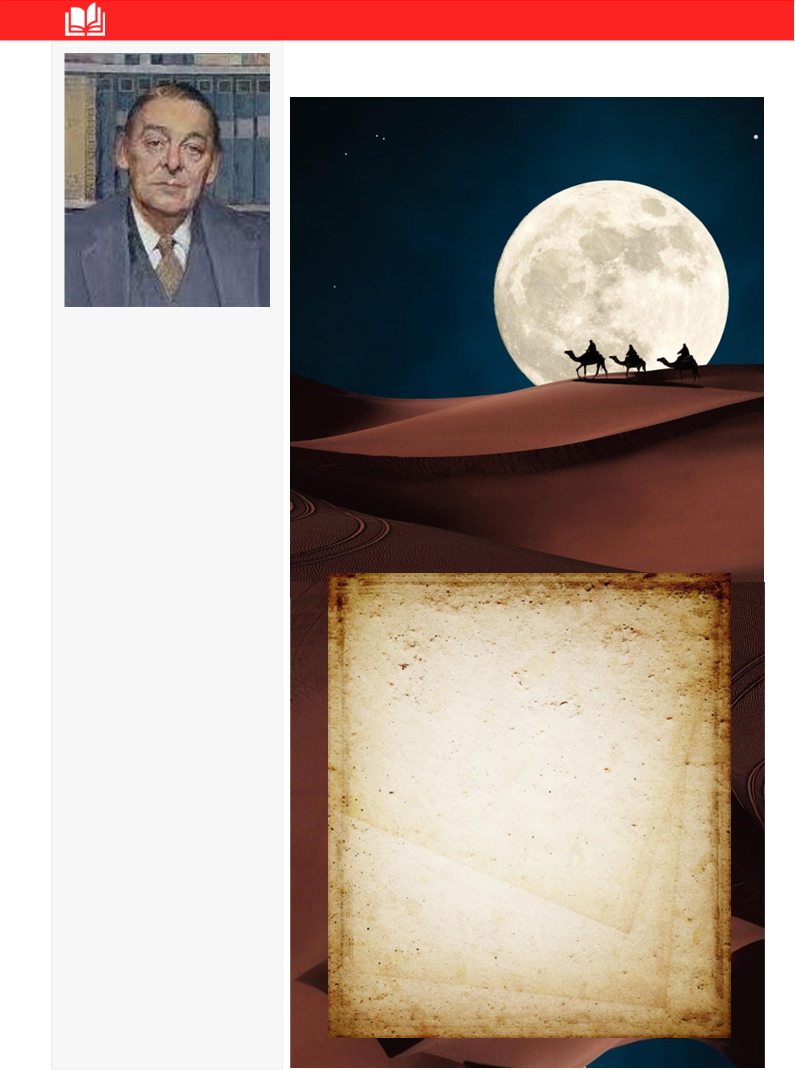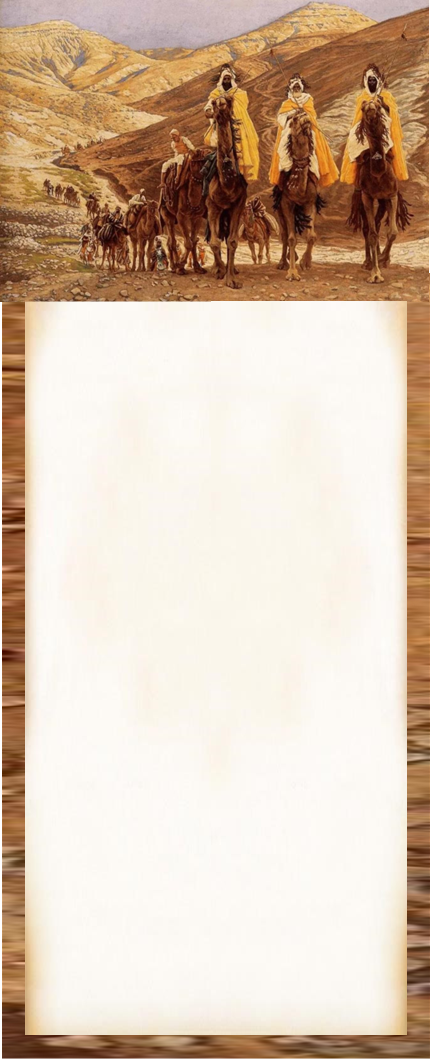Робочий аркуш (a worksheet): "The Journey of the Magi by Thomas Eliot"
Спецкурс з Літератури Великої Британії для учнів 10-11 класів
Тема: Література першої половини XX ст.
English Literature
POETRY by THOMAS STEARN ELIOT
ABOUT THE AUTHOR
T.S. Eliot was born in St. Louis, Missouri and attended Harvard University. After an additional year of education in Paris, he went to Oxford University and then back to Harvard. In 1914, he moved to and settled in England, marrying an English woman and working as a teacher and a banker. Here he met the American modernist poet Ezra Pound who encouraged Eliot’s writing. Eliot’s first publication, ‘The Love Song of J. Alfred Prufrock’ established him as an important modernist poet. Eliot began working at Faber and Faber publishing company, eventually becoming a director. He became a naturalized British citizen in
1927.
His poems focused on the disillusionment of the post-WW1 younger generation with the conventions and values (both social and Victorian Era. In his late thirties, he literary) of the converted into Orthodox Christianity. He greatly influenced the literary taste of his time with the promoting views that were founded in religious and social criticism. The poetry he wrote in his late years includes ‘Four Quartets’and ‘Ash Wednesday’. Then he wrote on literary criticism, and social criticisms include ‘The Use of Poetry and the Use of Criticism’ , ‘The Sacred Wood, Notes towards the Definition of Culture’, and ‘After Strange Gods ’.
Eliot also wrote the famous plays that include ‘The Cocktail Part’, ‘Murder in the Cathedral’ , and ‘The Family Reunion’. The verse drama ‘Murder in the
Cathedral’ recounts the martyrdom of
Becket at Canterbury Cathedral in 1170. The work was first performed in the
Chapter House at Canterbury Cathedral, only steps from where Becket’s murder took place.
In 1948, Eliot received the Nobel Prize
for literature. He remarried later in life, and on his death in 1965, his second wife worked to compile and edit his papers and manuscript drafts of his work. Eliot’s ashes are interred at East Coker Church, a small village in southwest England that was home to his ancestors. He also is honored with a commemorative stone in Poets Corner, Westminster Abbey.
TASK A. Read the text about the author and answer the following questions:
1. How important for his literary career was Eliot’s family background?
2. What were his other interests besides literature?
3. What was his contribution to the periodicals?
4. When and how did he become a British citizen? 5. What are his most famous works?
TASK B. Read the text about the poem and answer the questions:
1. What was the purpose of the journey of the Magi to Bethlehem? 2. What is the structure of the poem?
3. What was the meaning of the birth of Christ to the wise men?
4. Why is ‘The Journey of the Magi’ called the metaphorical poem? What does it represent?
THE JOURNEY
OF THE MAGI
ABOUT THE POEM
 'The Journey of the Magi' is T.S. Eliot’s dramatic monologue that focuses upon the famous biblical story of the three kings from the East travelling to Bethlehem to pay homage to the baby Jesus. He imagines one of the kings giving an account of the journey. It is a metaphorical poem, representing both birth and death, renewal and spiritual rebirth. Within the Christian tradition, the journey of the Magi is associated with celebration and wonder and gifts of gold, frankincense and myrrh. However, this seems like an arduous journey. The first twenty lines suggest that the kings had ‘a hard time’ of it.
'The Journey of the Magi' is T.S. Eliot’s dramatic monologue that focuses upon the famous biblical story of the three kings from the East travelling to Bethlehem to pay homage to the baby Jesus. He imagines one of the kings giving an account of the journey. It is a metaphorical poem, representing both birth and death, renewal and spiritual rebirth. Within the Christian tradition, the journey of the Magi is associated with celebration and wonder and gifts of gold, frankincense and myrrh. However, this seems like an arduous journey. The first twenty lines suggest that the kings had ‘a hard time’ of it.
In line s twenty-one to thirty-one, the magi arrive at their destination. Given what we know of the life and death of Christ, this section shows the significance of some of the images such as ‘the three trees on the
low sky’ and the hands ‘dicing for pieces of silver’.
In the last twelve lines we learn that the kings were deeply affected and changed by their experience. The birth of Christ heralds the start of a new order and new truth, and yet the kings have to return to their kingdoms and to ‘an alien people clutching their gods’.
ABOUT ELIOT’S STYLE
The perception of the world strongly influences the literary performance of the writer. The era in which Eliot was living made his writing style exceptionally melancholy. It was the time of depression and anguish. He uses traditional dramatic structure and mythic methods in his works.
His poems illustrate his ideas about the world. For him, the world is nothing but a place of struggle.
He used realistic themes and his religious imagery; he talked about the human isolation and depression prevailing in modern to him society. Eliot’s personal experiences shaped his literary style. Thus all of his
poems have incredible styles.
He uses sharply drawn, seemingly disjointed images. Eliot often built his poems around images that capture the essence of a time, place, and mood, much as good photographs do. At first, these images may seem to be unconnected, because they are linked mainly by emotional or thematic associations rather than directly stated connections.
There are a lot of allusions to other literary works and to historical events. Eliot’s poetry often refers to characters and situations from classic literature and to historical figures and events. These allusions enrich the meaning of Eliot’s poems, inviting readers to compare and contrast the past
with the present.
It is worth to mention ironic juxtaposition. In the same line of an Eliot poem, you may find religious imagery intermingled with something as trivial as a popular song, nursery rhyme, or jingle. Eliot often presented the sacred and the everyday side by side to contrast them. This contrast creates a sense of irony, dramatizing what Eliot saw as the trivialization of spirituality in the modern world.
Eliot admired and helped foster a renewed interest in the 17th-century Metaphysical poets such as John Donne. Modernist poets appreciated their metaphysical conceits, striving to achieve hard images in their own writing, images that were clear
and sharp due to precise, concise language.
|
TASK C. Read the text about Eliot’s style and answer the questions:
1. What are the main characteristics of Eliot’s style? 2. What types of figurative language did Eliot use? 3. What exactly did Eliot appreciate in the metaphysical poetry of the 17th century? TASK D. Read the poem and do the exercises:
1. Translate the following words and phrases?
a) a cold coming f) not a moment too soon b) the dead of winterc) sleeping in snatches g) no longer at easeh) an alien people d) smelling of vegetation i) set dowm e) dicing for piece of silver j) clutching their goods 2. Complete the sentences with words from the poem:
a) Just the worst time of the year for a __________, and such a long __________ . b) With the voices singing in our ears saying that this was all __________ . c) this __________ was hard and bitter agony for us d) We returned to our places, these __________ . 3. Match the key words with their definitions:
1) sharp a) a dwelling place or home 2) regret b) something that makes situations clear 3) shelter c) to feel sorrow or remorse for 4) evidence d) unlike one’s own, strange 5) alien e) keenly cold
4. By what means does the author cre ate the feeling of hardship? Which passages sound like prose?
|
by Thomas Eliot
THE JOURNEY OF THE MAGI
‘A cold coming we had of it, Just the worst time of the year For a journey, and such a long journey:
The ways deep and the weather sharp,
The very dead of winter.’
And the camels galled, sore-footed, refractory, Lying down in the melting snow.
There were times when we regretted
The summer palaces on slopes, the terraces, And the silken girls bringing sherbet.
Then the camel men cursing and grumbling
And running away, and wanting their liquor and women,
And the night-fires going out, and the lack of shelters, And the cities dirty and the towns unfriendly And the villages dirty and charging high prices:
A hard time we had of it.
At the end we preferred to travel all night,
Sleeping in snatches,
With the voices singing in our ears, saying That this was all folly.
Then at dawn we came down to a temperate valley,
Wet, below the snow line, smelling of vegetation;
With a running stream and a water mill beating the darkness,
And three trees on the low sky,
And an old white horse galloped away in the meadow.
Then we came to a tavern with vine-leaves over the lintel, Six hands at an open door dicing for pieces of silver, And feet kicking the empty wine-skins.
But there was no information, and so we continued And arrived at evening, not a moment too soon Finding the place; it was (you may say) satisfactory.
All this was a long time ago, I remember,
And I would do it again, but set down
This set down
This: were we led all that way for
Birth or Death? There was a Birth, certainly,
 We had evidence and no doubt. I had seen birth and death, But had thought they were different; this Birth was Hard and bitter agony for us, like Death, our death. We returned to our places, these Kingdoms,
We had evidence and no doubt. I had seen birth and death, But had thought they were different; this Birth was Hard and bitter agony for us, like Death, our death. We returned to our places, these Kingdoms,
But no longer at ease here, in the old dispensation, With an alien people clutching their gods.
I should be glad of another death.
1927


про публікацію авторської розробки
Додати розробку
